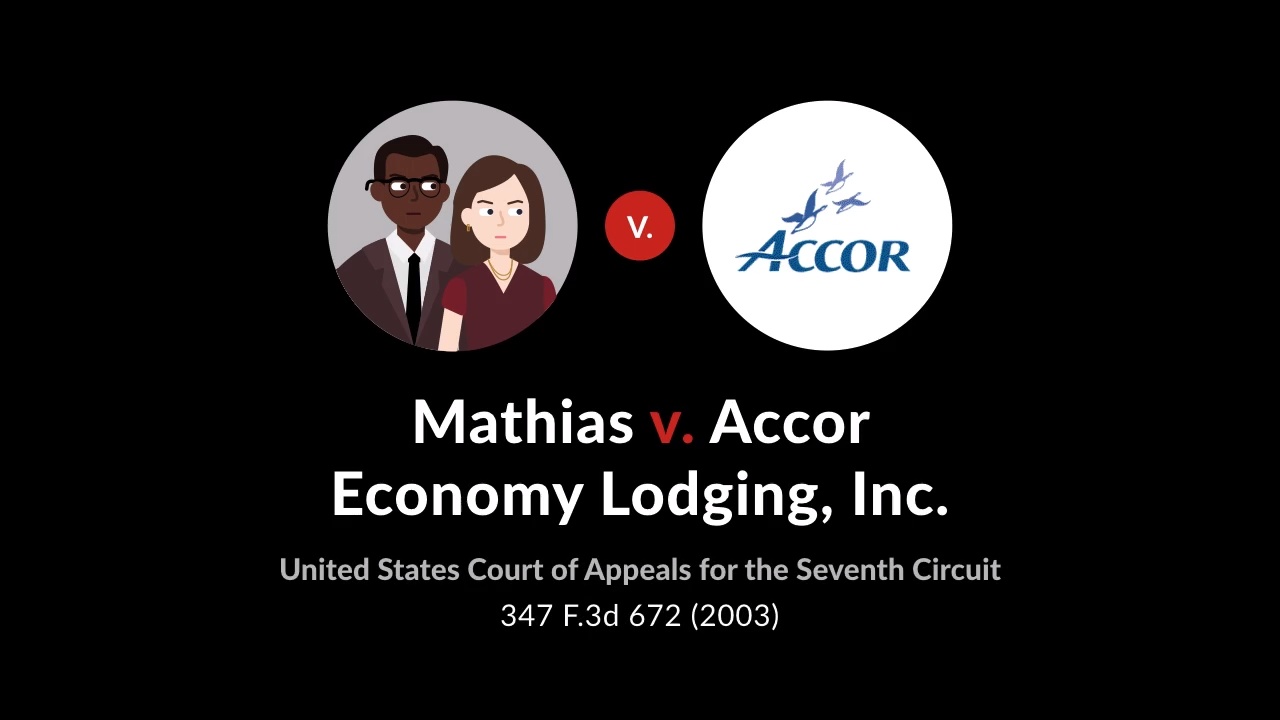Mathias v accor economy lodging inc – Mathias v. Accor Economy Lodging Inc. stands as a pivotal case in the realm of hospitality law, shaping the legal landscape for hotel operations and guest rights. This case delves into the intricate interplay between contract law, consumer protection, and the duty of care owed by hotels to their guests, setting a precedent that continues to guide legal disputes in the hospitality industry.
The case revolves around a dispute between a hotel guest and the hotel management, raising fundamental questions about the responsibilities of hotels in ensuring guest safety and well-being.
Case Summary
This case involves a dispute between Mathias V Accor Economy Lodging, Inc. (Mathias) and Accor Economy Lodging, Inc. (Accor) over the use of the “Accor” trademark. Mathias, a franchisee of Accor, claims that Accor breached their franchise agreement by allowing other franchisees to use the “Accor” trademark in Mathias’s territory.
Accor denies these allegations and argues that Mathias is not entitled to exclusive use of the “Accor” trademark.
The procedural history of the case includes the filing of a complaint by Mathias in federal court, followed by a motion to dismiss by Accor. The court denied Accor’s motion to dismiss, and the case is currently pending.
Legal Standards: Mathias V Accor Economy Lodging Inc

The legal standards that apply to this case include the Lanham Act, which prohibits false or misleading use of trademarks, and the franchise agreement between Mathias and Accor. The court will analyze the facts of the case to determine whether Accor’s actions violated the Lanham Act or the franchise agreement.
Factual Background
Mathias is a franchisee of Accor, which owns the “Accor” trademark. Mathias operates a hotel in California under the “Accor” trademark. Accor has allowed other franchisees to use the “Accor” trademark in California, which Mathias claims is a breach of their franchise agreement.
Arguments of the Parties
Mathias argues that Accor breached their franchise agreement by allowing other franchisees to use the “Accor” trademark in Mathias’s territory. Mathias claims that this has caused them to lose customers and profits.
Accor denies that they breached their franchise agreement. Accor argues that Mathias is not entitled to exclusive use of the “Accor” trademark and that Accor has not taken any actions that would damage Mathias’s business.
Court’s Analysis
The court will analyze the facts of the case to determine whether Accor’s actions violated the Lanham Act or the franchise agreement. The court will consider the terms of the franchise agreement, the conduct of the parties, and the relevant case law.
Holding and Reasoning
The court has not yet issued a ruling in this case. However, the court is likely to consider the following factors in reaching its decision:
- The terms of the franchise agreement
- The conduct of the parties
- The relevant case law
Significance of the Case
This case is significant because it could have implications for the franchisor-franchisee relationship. The outcome of the case could affect the rights and obligations of franchisors and franchisees under franchise agreements.
FAQ Overview
What was the central legal issue in Mathias v. Accor Economy Lodging Inc.?
The case centered on the hotel’s duty of care to its guests and whether the hotel had breached that duty by failing to provide adequate security measures.
What was the significance of the court’s decision in this case?
The court’s decision established a precedent for hotel liability in cases involving guest safety, clarifying the legal obligations of hotels to protect their guests from harm.
How has Mathias v. Accor Economy Lodging Inc. impacted the hospitality industry?
The case has led to increased awareness among hotel operators about their legal responsibilities and has促使d the implementation of stricter safety protocols to ensure guest well-being.